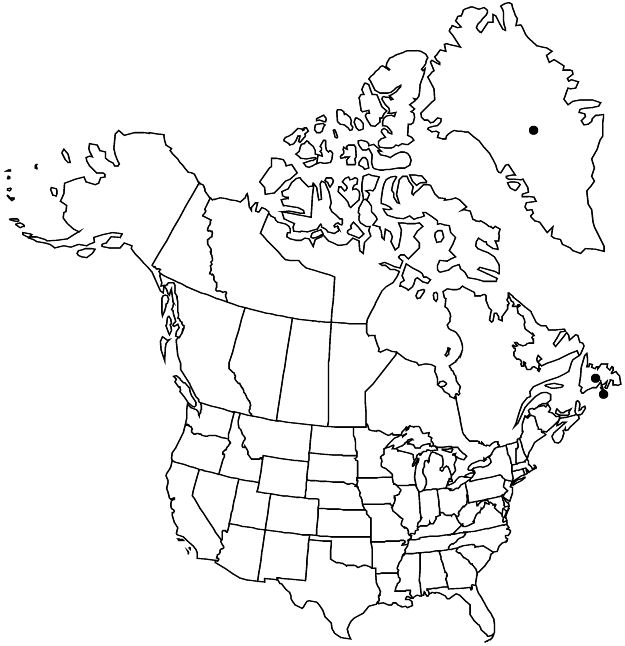Alchemilla alpina
Sp. Pl. 1: 123. 1753.
Plants dwarfed, green to dark green, carpet-forming, 5–20 cm, rarely taller. Stems appressed- to ascending-hairy. Leaves: stipules translucent, quickly turning brownish; blade ± orbiculate, palmately compound, leaflets 5–7, narrowly elliptic to oblanceolate, apices with 7–11 teeth, margins flat, abaxial surface sericeous, adaxial shiny, glabrous. Inflorescences: primary branches densely appressed-hairy. Pedicels usually shorter than hypanthia, densely appressed-hairy. Flowers: epicalyx bractlet lengths 0.5 or less times sepals; hypanthium densely pubescent; sepals erect after flowering. Achenes not exserted.
Phenology: Flowering mid Jun–mid Sep.
Habitat: Meadows, herb slopes, moist rock ledges
Elevation: 0–500(–1000) m
Distribution

Greenland, St. Pierre and Miquelon, Nfld. and Labr. (Nfld.), Europe.
Discussion
In the flora area, Alchemilla alpina is possibly introduced except in Greenland.
Selected References
None.